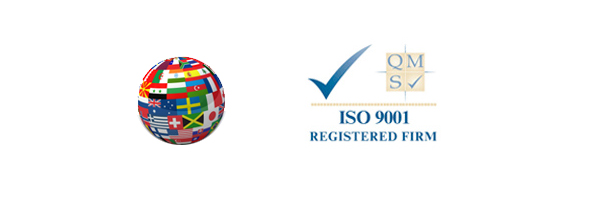Why America dithered about joining the war
WHEN “the chips are down”, David Cameron declared on a visit to Washington last year, Britain and America know that they can always count on each other. Standing beside Barack Obama on a sun-drenched White House lawn, Britain’s prime minister invoked the memory of their respective grandfathers, serving in the same campaign to drive Hitler’s forces from France. The message was clear. Seven decades on, when the British need to claim a special relationship with America, nothing approaches the second world war’s talismanic power.
去年,卡梅伦在访问华盛顿时说:在“危急时刻”,英美两国明白,双方总是可以互相信赖的。卡梅伦首相与奥巴马一同站在白宫洒满阳光的草坪上,卡梅伦唤起了双方对各自先辈的回忆:他们并肩作战,将希特勒的军队从法国驱赶出去。卡梅伦传达了一条明确的信息:七十年后的今天,当英国需要与美国保持一种特殊关系时,什么也比不了二战的特殊魔力。
In truth, for two terrifying years after it declared war on Germany, Britain did not know that America would come to its aid. Winston Churchill’s government wavered between a conviction that President Franklin Roosevelt did not want Hitler to control the whole of Europe and so would send help, and a suspicion that many in his government dreamed of scavenging the assets of a doomed British empire. Britain made an extraordinary effort to bring America into the war before it was too late. With Roosevelt’s tacit approval, hundreds of British agents flooded neutral America, secretly spying on isolationist politicians, Axis diplomats and Nazi sympathisers and more openly wooing public opinion with lectures, radio broadcasts and stories planted in friendly newspapers (some of them true). Marrying a historian’s thoroughness with a biographer’s eye for human nature, Lynne Olson’s magnificent new account shows what a close-run thing their campaign was.
实际上,在英国向德国宣战后可怕的两年中,英国不知道美国会对其提供帮助。丘吉尔政府摇摆不定,时而坚信罗斯福不会让希特勒控制整个欧洲,因此会向英国提供援助;时而又怀疑罗斯福政府中的一些人,认为他们梦想着大英帝国会毁灭,然后蚕食其资产。英国竭尽全力及时地拉动美国参战。在罗斯福的默许下,数百名英国间谍涌入中立的美国,秘密监视孤立派政治家、轴心国外交官和纳粹的同情者,他们还发表演讲、进行电台广播,同时在亲英的报纸上刊登故事(有些是真实的故事),来更加公开地争取民心。在这部精彩绝伦的新书中,作者Lynne Olson结合历史学家的全面性和传记作家对人性的探寻,向读者展示了他们的行动是如何地惊险。
“Those Angry Days” describes a divided America that is little remembered now, amid (well-earned) praise for the greatest-generation years that followed. She depicts an anti-war country in which bars near army bases sported signs banning soldiers, and generals wore mufti to testify on Capitol Hill, lest their uniforms provoke isolationist members of Congress.
《那些愤怒的日子》一书描述了一个现在鲜为人知的分裂的美国,字里行间也体现了对之后数年内最伟大一代【1】(应得)的赞许。她描述了一个反战的国家,在那里,军事基地附近的酒吧挂着禁止士兵入内的标识,将军则在美国国会山身穿便服作证,以免他们的制服惹恼议会中不主张美国参战的人。
In defence of that pacifism, she explains how Americans felt (with some reason) that their country had been dragged into the first world war by clever British propaganda and promises that Americans killed in Europe’s mud were making the world “safe for democracy”. Twenty years later, many Americans believed that Europe’s squabbling powers once again seemed unwilling or unable to defend democracy. Less defensibly, a series of grandees—whether army officers, senators, press barons, or students at Yale and Harvard—are shown questioning whether there was any great moral difference between Britain and Nazi Germany, a view that was often tinged with anti-Semitism.
美国人感到正是英国人狡猾的宣传和保证(英国人曾向美国人保证:在欧洲战场牺牲的美国人会让这个世界“对民主来说很安全”)才把美国卷入了第一次世界大战,这些感受还是有原因的。作者为反战主义辩护,解释了美国人为什么这样想。二十年后,许多美国人认为欧洲争吵不休的大国再次似乎不愿意或不能够保卫民主。作者还较客观地指出:一系列的大人物——不管是军官、议员、报业巨头或是耶鲁和哈佛大学的学生——都在质疑英国和纳粹德国之间是否存在任何道义上的不同,这种观点常常带有一丝反犹太主义色彩。
Many pages are devoted to an isolationist leader whose clay feet are well known: the transatlantic air pioneer, Charles Lindbergh (pictured), who came grievously close to sympathising with the Nazis. But the book’s power lies in its finely shaded portraits of figures more usually remembered in poster-bright hues of heroism.
作者还用了许多笔墨来描述一位孤立派领导人,他就是跨大西洋飞行员查尔斯-林白【2】 (Charles Lindbergh,如图),他的致命弱点广为人知:他十分接近于同情纳粹。但是本书的妙处就在于作者擅于用委婉的手法对一些人物进行描述,这些人物在当今人们的眼中英雄色彩更浓一些。
George Marshall, who would later become a great war commander, is shown resisting help for embattled Britain until late in 1941. Marshall never quite rebelled openly, but he shielded aides as they leaked and schemed against government policy. Several senior officers were (in the private judgment of Roosevelt’s secretary of war) “essentially pro-German”. For his partRoosevelt is shown as perilously indecisive, poring over opinion polls and “waiting to be pushed into war”, as he told his treasury secretary. Even after the attack on Pearl Harbour, which was greeted with champagne by British officials in America, the president hesitated, detecting a “lingering distinction” in public opinion between war with Japan and a second front with Germany. In the end, Hitler made the decision for him by declaring war on America.
本书写道:后来成为战时指挥官的马歇尔一直拒绝向四面楚歌的英国提供帮助,这种情况一直持续到1941年年末。尽管马歇尔基本上从来没有公开反对向英国提供援助,但是当来自美国的援助一点点流向英国时,他对之进行了阻止;马歇尔还暗中反对政府的政策。几名美国高级军官(根据罗斯福的战争部长私下里的判断)“实际上是亲德的”。在本书中,罗斯福优柔寡断至极、埋头研究民意调查、“等着被推入战争”——罗斯福就是这么告诉他的财政部长的。珍珠港袭击发生后,在美的英国军官用香槟酒庆祝,甚至在那以后,罗斯福总统仍然犹豫不决,认为“向日本开战”和“在第二战线与德国开战”这两种民意“一直存在区别”。最后,希特勒率先向美国开战,从而为罗斯福做了决定。
The British are not let off scot-free. In addition to planting propaganda, British agents broke American laws with a will. The British tapped phones, opened letters and even forged a map given to Roosevelt, supposedly showing Nazi plans to take over Latin America. Snobbery played into Britain’s hands. The book could be sub- titled “Wasps at War”, as east-coast anglophiles and Wall Street millionaires pushed their country towards engagement, against isolationist forces drawn from the prairies and small towns of middle America.
英国人的所作所为我们可不能不追究。除了四处播撒言论,英国间谍还大肆破坏美国的法律。英方窃听电话、私拆信件、甚至虚造了一幅地图给了罗斯福,让他以为纳粹可能有占领拉丁美洲的计划。英国人正是利用某些美国人的势利眼而达到了自己的目的。该书的副标题可作“战时的VIP们”,因为那时美国东海岸的亲英派和华尔街百万富翁将美国推向了参战之路,尽管那些来自北美大牧场和美国中部小镇的孤立派反对这么做。
Among the heroes are Wendell Willkie, the Republican presidential candidate in 1940, who after his defeat backed Roosevelt and vitally campaigned for Americans to be conscripted and trained for war and for Britain to be sent aid. That enraged many in Willkie’s party, but may have helped avert a Nazi victory.
温德尔•威尔基【3】是众多英雄之一,他在1940年是共和党总统候选人,在总统竞选失败后他支持罗斯福,并积极动员美国人为战争应征入伍并接受训练、推动为英国送去援助。这激怒了很多共和党人,但这很可能扭转了战局,防止了纳粹的胜利。
In the end, the public was ahead of many in the elite. Even before Pearl Harbour, polls showed Americans preferring entry into the war to a German victory over Britain. Japan had hoped its bombs would demoralise Americans. Instead, America was united by the attack. Two years of savage debate had already aired every argument for and against war, Ms Olson notes. Democracy was America’s strength, as an anxious Britain had hoped it would be. It was a point despotic enemies could never have understood.
最后,民众反而走在了很多上层人士的前面。甚至在珍珠港事件发生以前,民意测验就显示美国人更倾向于美国参战,而不是德国战胜英国。日本原本希望在珍珠港投下的炸弹能使美国人人心涣散;然而,那场袭击让美国人团结一心。作者Olson指出,在两年的激烈辩论中,人们可以听到各种支持和反对美国参战的言论。民主是美国的力量所在,而这正是焦虑的英国所希望能做到的。而这一点是任何专制的敌人永远也不会明白的。
青岛翻译公司推荐阅读
赤峰翻译公司推荐阅读
随机文章













